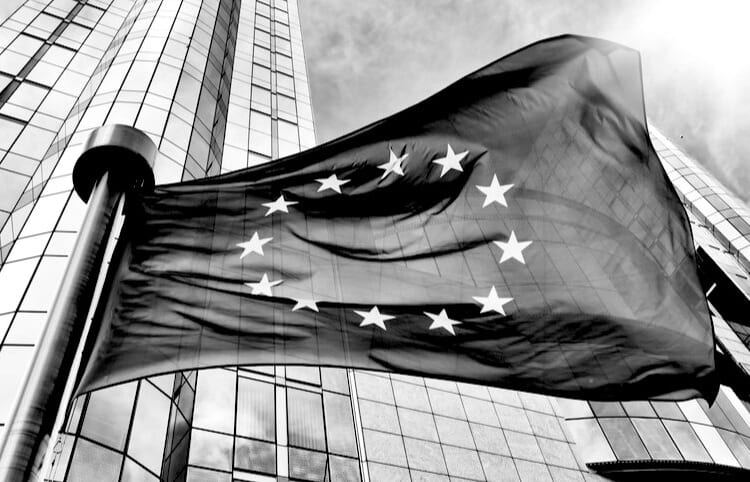ALL over the West we hear talk of the ‘threat to democracy’ of that progressive bogeyman, the ‘far right’. What this really means is that there is a threat to rule of the managerial elite whose progressive values control our decision-making bodies.
The EU has always been a haven for the bureaucratic and managerially inclined. With the fall of the Berlin Wall and the accession of the ex-communist countries this has been reinforced. Many of the Communist apparatchiks who administered countries such as Poland and Hungary moved effortlessly into posts as EU bureaucrats. This happened because there are distinct similarities between liberalism and Communism in managerial style. Both ideologies hold all that came before them in contempt and despise national traditions as restrictions on the utopias which will come about only through their own endeavours. They are unable to tolerate dissent and view disagreement with their ideals as hateful. Traditional Christians are viewed as dangerous and a possible source of ‘wrong think’.
The EU, one of the prime examples of rule by a managerial elite, loves democracy – when it is the EU’s version of democracy. In Poland, when Donald Tusk emerged as likely prime minister after October’s general election, he had no embarrassment about declaring ‘Democracy has won. Poland has won’. The fact that the populist and EU sceptical Law and Justice (PiS) party won 36.8 per cent of the vote, with Tusk’s ‘centrist’ opposition, Civic Coalition, coming in with 31.6 per cent was immaterial.
Tusk was able to cobble together a coalition from the centre-right and the left to gain power and oust the populists. When he said: ‘Today we can say this is the end of the bad time, this is end of Law and Justice rule’, he meant just that. Tusk immediately began trampling on the constitution to jail his political opponents and to erase any vestige of what they had put in place.
Tusk finally became prime minister in December and has been busy. Former PiS prime minister Jarosław Kaczyński spoke this week about one of the key problems facing Poland today, the threat to democracy: ‘We just want to go back to normal, democratic and law-abiding Poland’. It will be a long road back as the Tusk government is beavering away at dismantling all that had been achieved by the PiS.
When the PiS was in power the EU was ever ready to issue a communique or launch legal challenges accusing Poland of doing wrong. Now that Brussels’s man is in power in Warsaw, we see the reality of what ‘rule of law’ and ‘democracy’ mean to the EU. They are silent about actions which would have brought about collective apoplexy if they had occurred in PiS Poland or Fidesz Hungary.
Tusk had campaigned on ‘restoring the rule of law’ in Poland. This was important because the EU had frozen more than $100billion meant for Poland on the grounds that PiS had ‘politicised’ the courts. The PiS had enacted reforms which, rather than allowing judges to appoint each other, enabled more judges to be appointed by elected officials. This meant that they would face at least some measure of democratic accountability, as happens in most Western countries. Prior to the PiS reforms, communist era judges appointed new judges with a similar outlook, leading to an unbroken succession of left-wing judges. The EU considered giving more power to the people’s elected representatives to be a matter of ‘democratic backsliding’.
When, in violation of the law, Tusk’s justice minister fired the National Prosecutor, a PiS appointee, the president of Poland refused to sanction the action. The justice minister then simply claimed that the National Prosecutor had not been appointed legally and therefore had never actually held the office, and promptly appointed a new National Prosecutor. The Tusk government intends similarly to question the legitimacy of many more PiS appointees, especially judges. Doing this will allow them to question the legitimacy of all the rulings and precedents made under the tenure of PiS-appointed judges.
The state broadcaster was one of the few media outlets in Poland which was friendly to the ‘right’. The response of the Tusk government was to send in police to seize control of the state broadcaster, closing its offices and purging its staff. Poland’s constitutional court declared this move illegal. Only Poland’s National Media Council was entitled to make such far-reaching management decisions. Tusk’s government dismissed the court’s ruling as illegitimate because it viewed at least one of the judges involved as having been politically appointed by PiS government.
The way forward is clear: the Tusk administration plans to ignore any rulings from bodies it considers staffed by PiS sympathisers. The PiS government had attempted to strengthen Poland’s traditional values and culture. The Tusk government are determined to remove every trace of their nationalist opponents’ work. But then, ‘democracy has won. Poland has won’.
In her speech at Davos this year, Ursula von der Leyen, president of the EU Commission, argued that the worrying things to the elites over the next two years are ‘misinformation and disinformation.’ They are worried that ordinary people might be getting unfiltered information which would lead them to question what they are fed through the reliable mainstream media. Unreliable sources such as TCW Defending Freedom.
It is imperative we support TCW. As Poland shows us, there is too much at stake not to.

